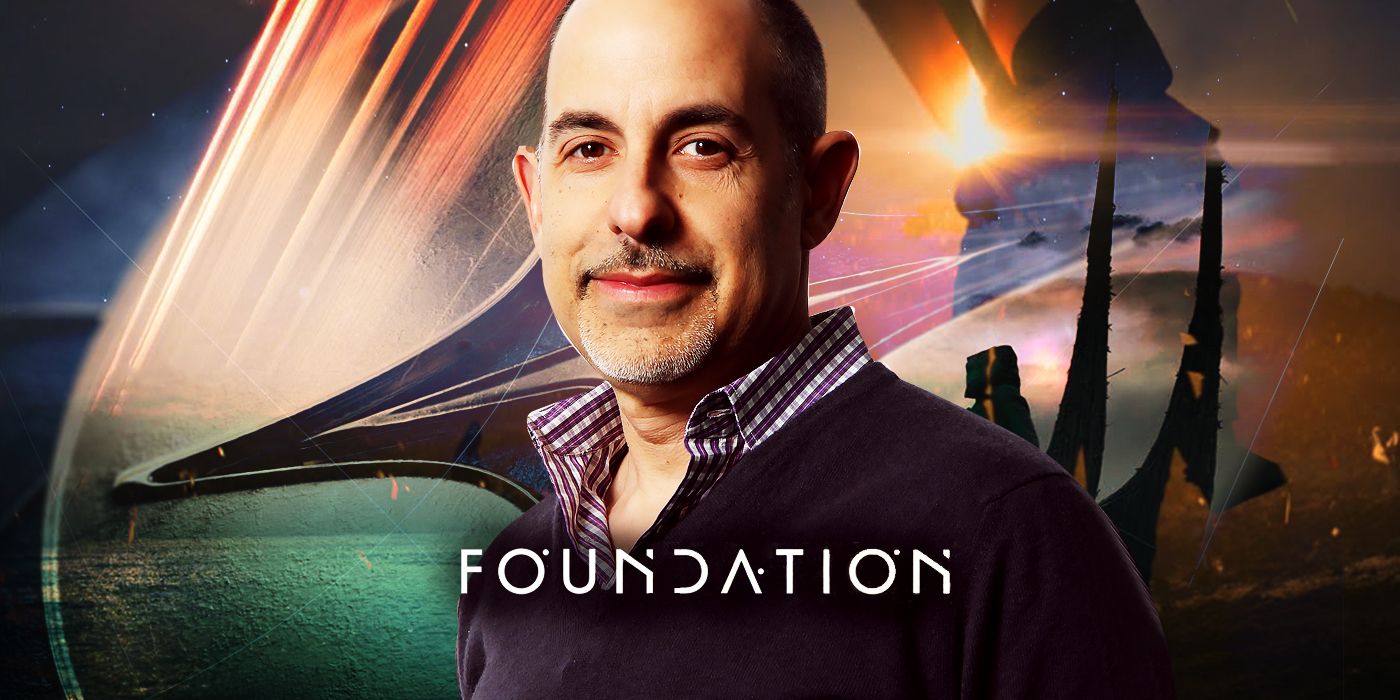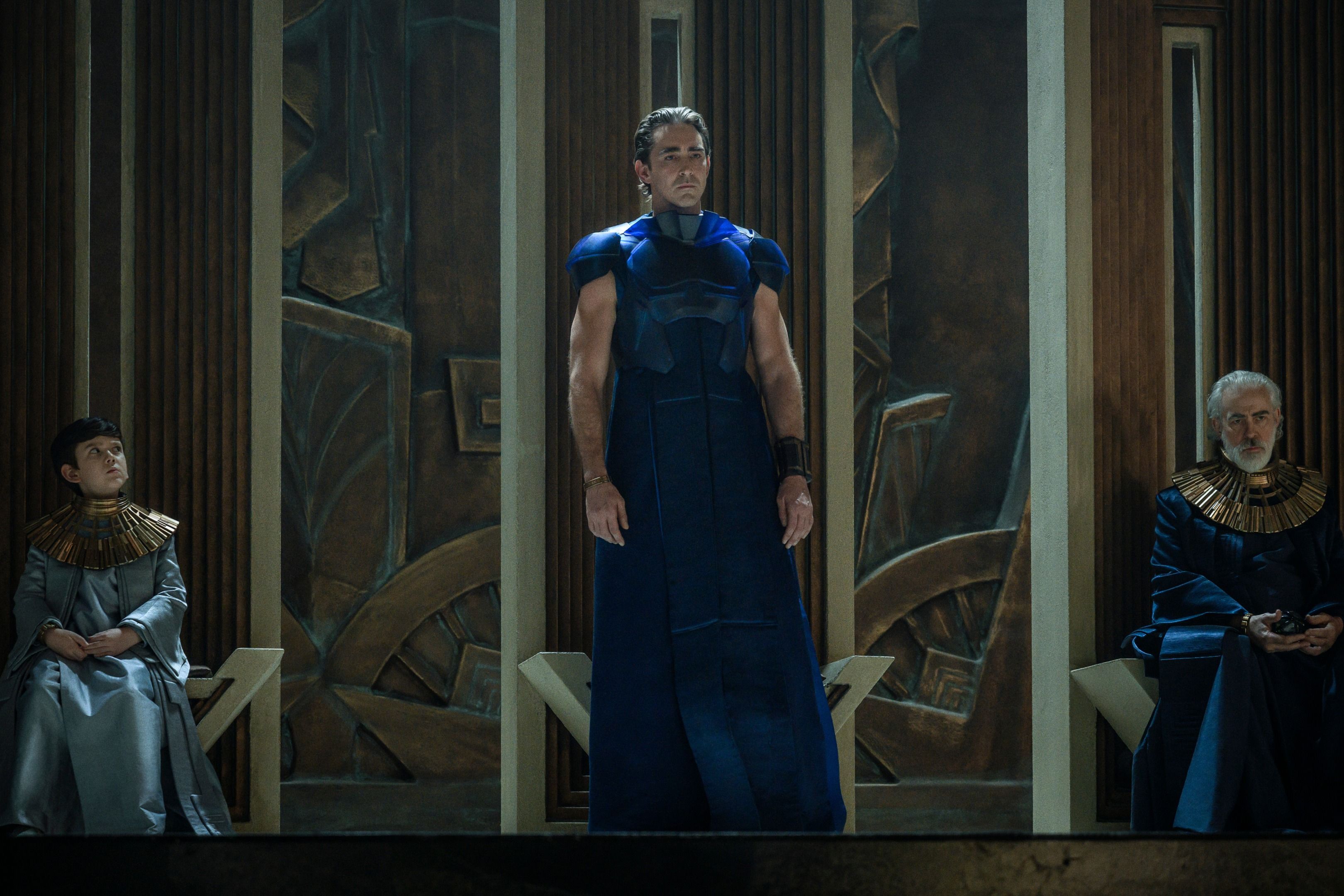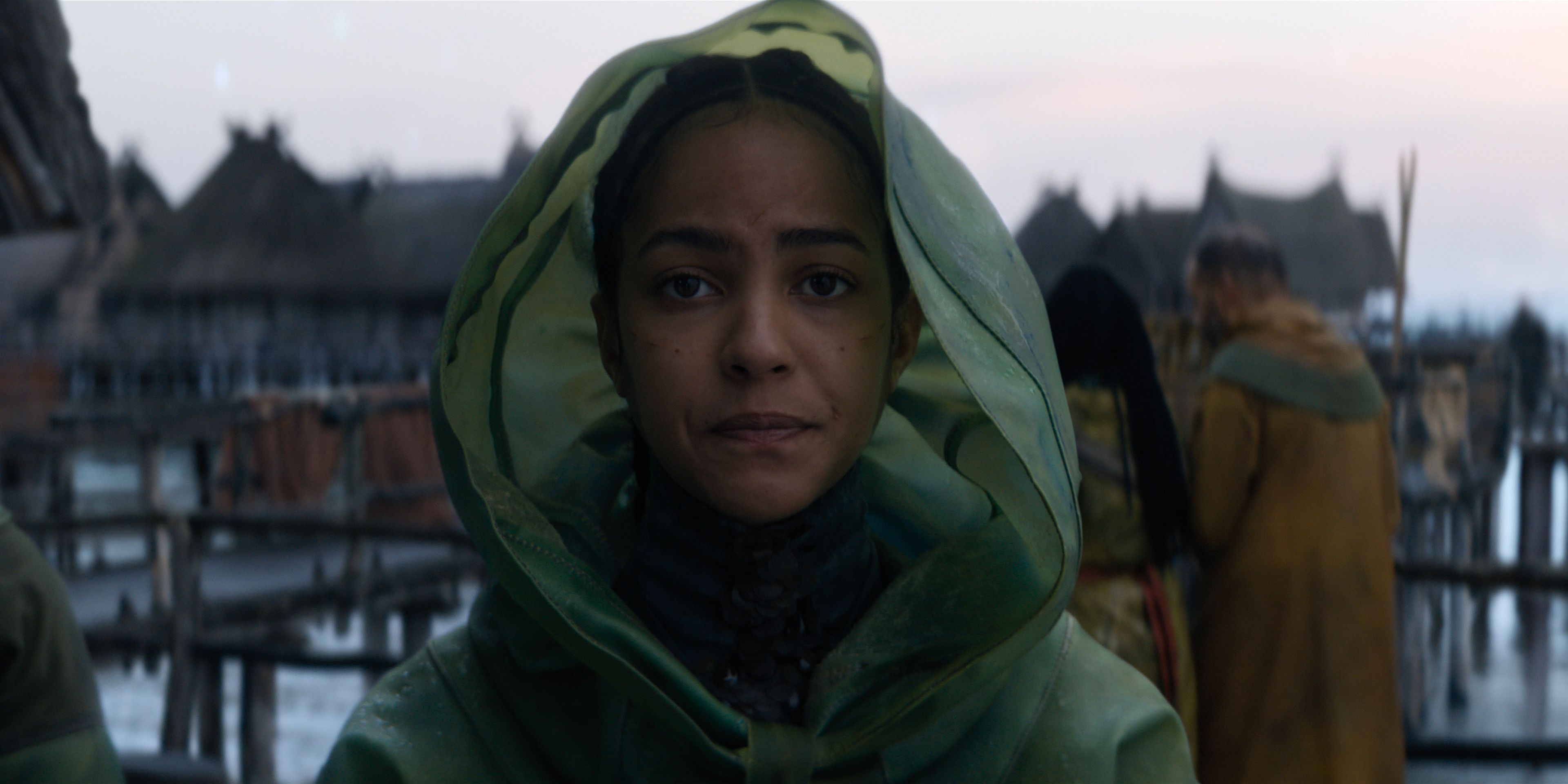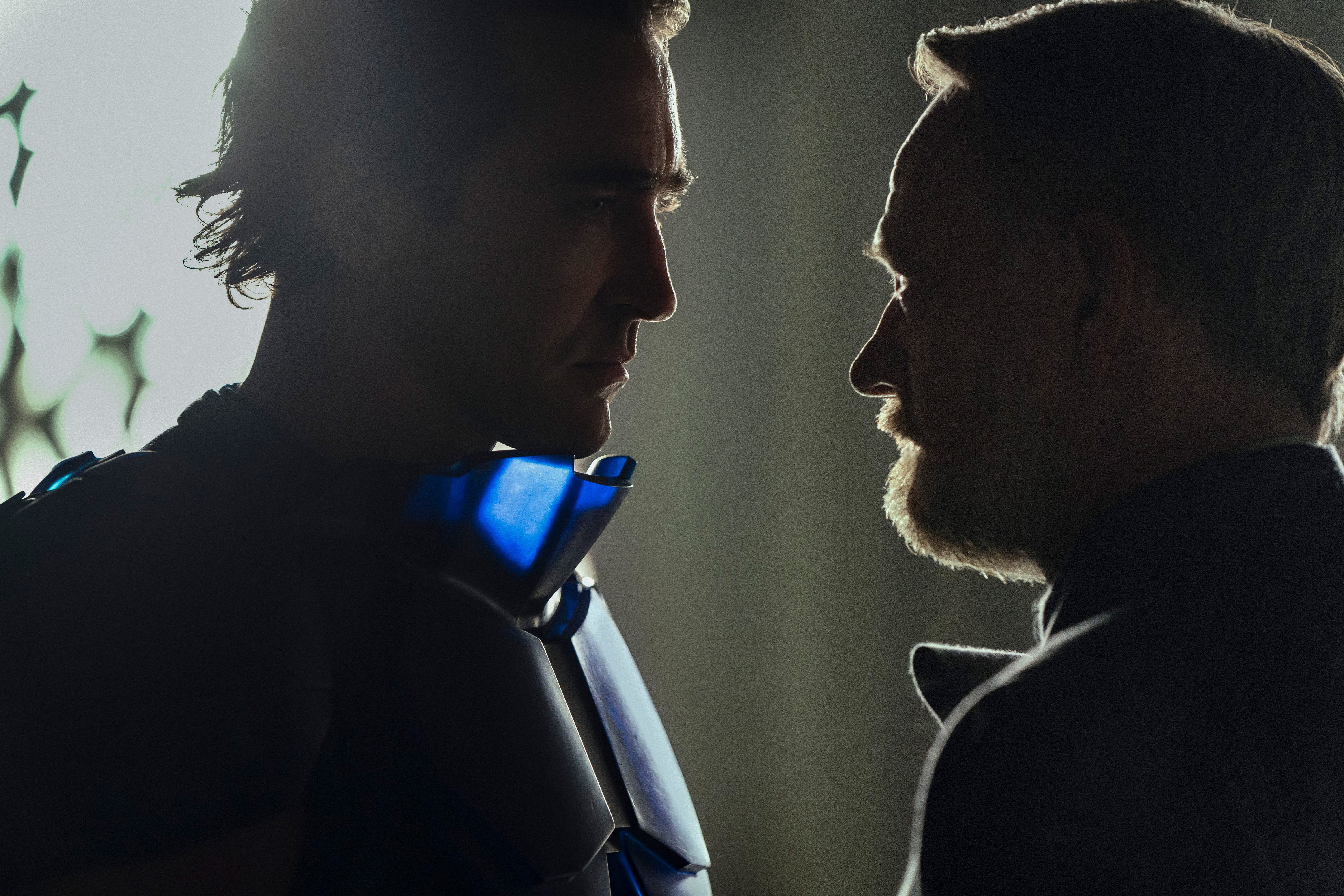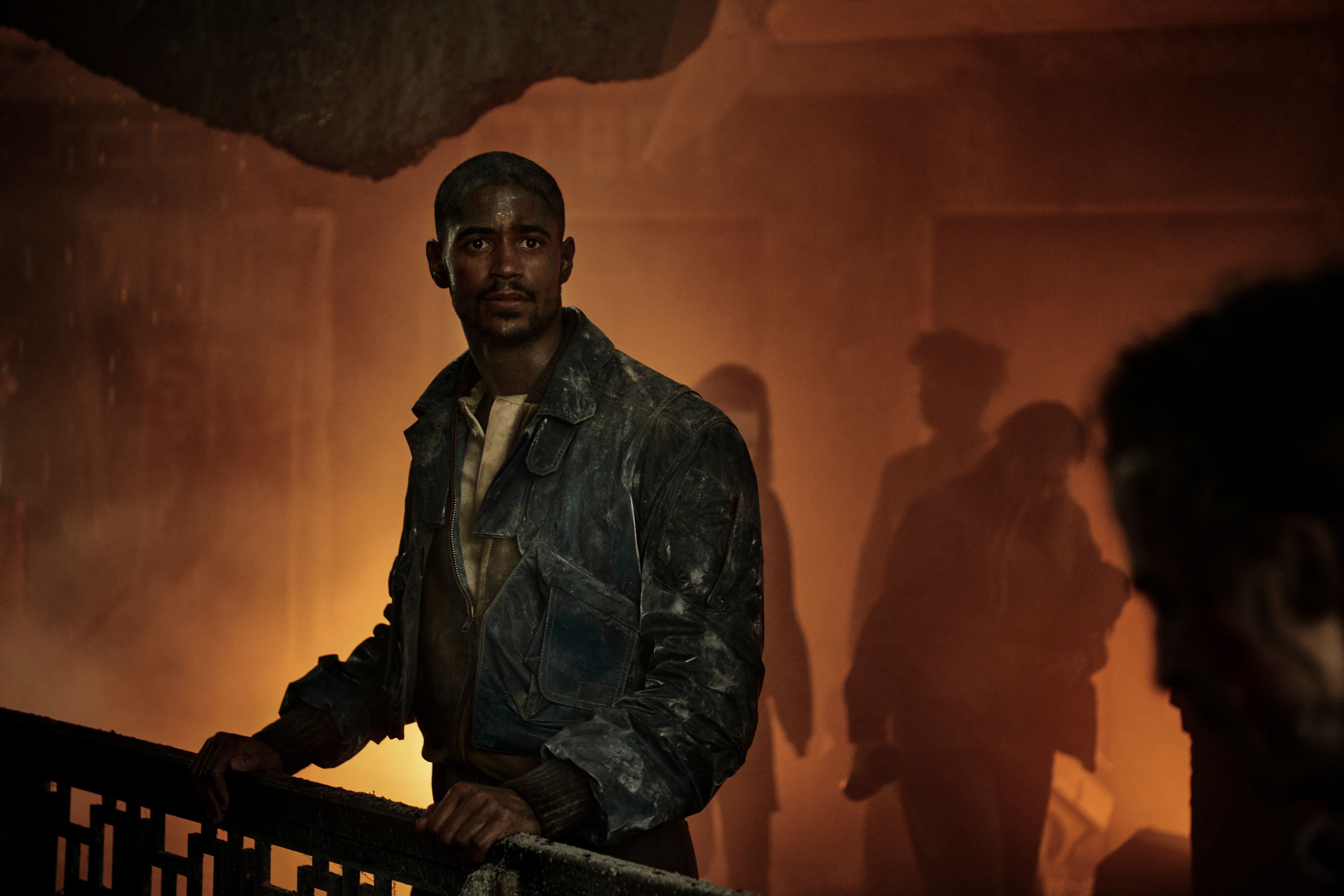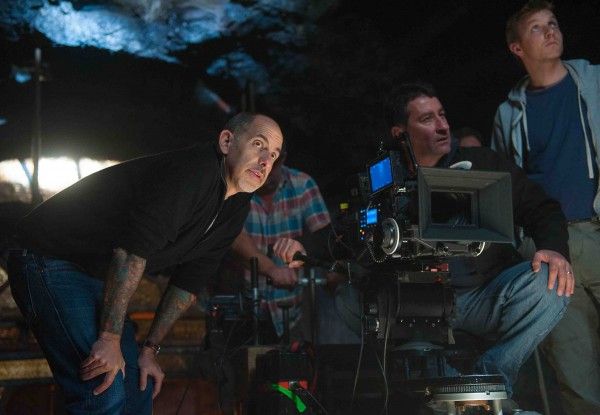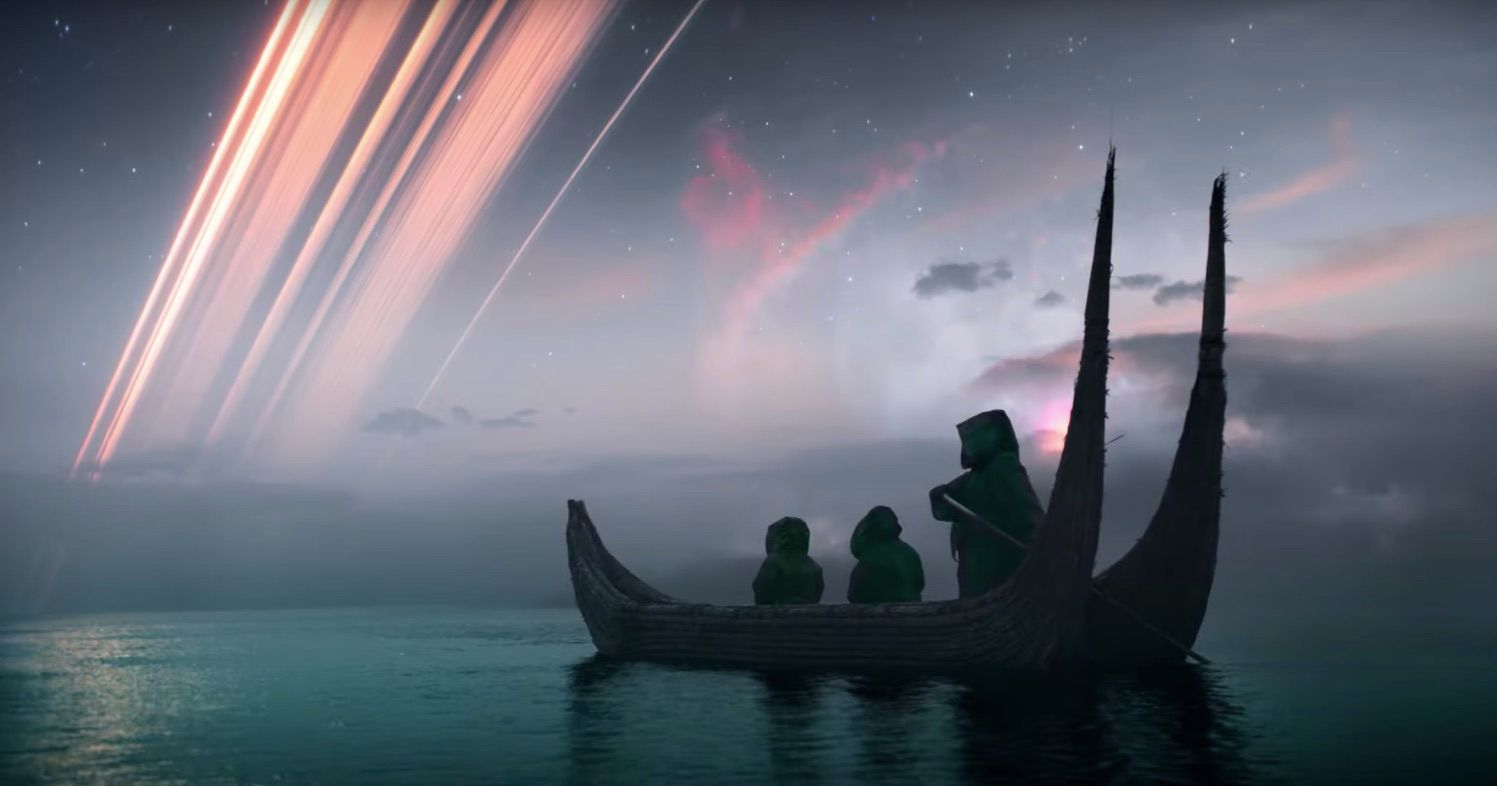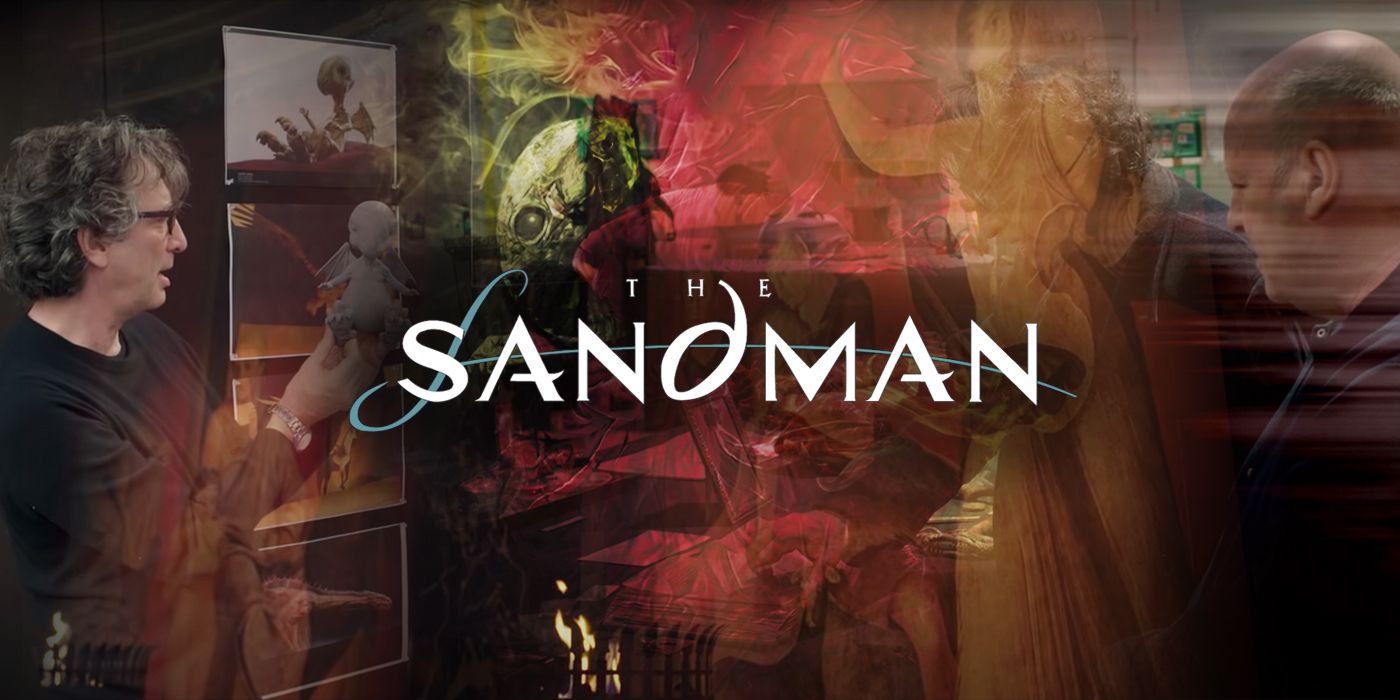People have tried to bring Isaac Asimov’s hugely influential Foundation novels to the screen for years, and with the fantastic new Apple TV+ series of the same name, they finally pulled it off. Considered by many to be one of the greatest science fiction works of all time, Foundation is an extremely ambitious series that takes place across many planets and time periods.
For those unfamiliar with the source material, Asimov’s books takes place at a time when humans are scattered on planets all over the universe, living under the rule of the Galactic Empire. When a psycho-historian with the power to see the future foretells that the empire will collapse very soon, he sets out to ensure that the knowledge of mankind isn’t wiped out. Trust me, if you’re looking for an exceptional well-made series, you want to push play on Foundation immediately.
Shortly after watching the first eight episodes, I got to speak with showrunner, creator, and executive producer David S. Goyer. During the extended interview he talked about the many challenges of making the series, how he pitched Apple on an eight-season/eighty-episode series, how he knows what happens at the end of it, why he could only direct the season finale, and promised that most of the questions that the audience has over the course of season one will be answered by episode 10 (but not all of them). He also discussed why streaming has opened the door to stories like Foundation finally being told, why he added more women and much-needed diversity to the story, how the COVID shutdown actually helped the series, how he has the bulk of Season 2 figured out, and more. In addition, with Goyer also producing The Sandman for Netflix and David Bruckner’s Hellraiser reboot, he teased what fans can look forward to on both adaptations.
The cast for Foundation includes Jared Harris as Hari Seldon; Lee Pace as Brother Day; Lou Llobell as Gaal Dornick; Leah Harvey as Salvor Hardin; Laura Birn as Demerzel; Laura Birn as Eto Demerzel; Terrence Mann as Brother Dusk; Alfred Enoch as Raych Seldon; and Cassian Bilton as Brother Dawn. Foundation is produced for Apple by Skydance Television with Robyn Asimov, Josh Friedman, Cameron Welsh, David Ellison, Dana Goldberg and Bill Bost also serving as executive producers.
Watch what David S. Goyerhad to say in the player above or you can read the full transcript below. Finally, if you didn't hear, Foundation was renewed for Season 2 yesterday.
COLLIDER: I want to start with, congratulations on Foundation. I've seen the first eight episodes. What do I need to give you to get episodes 9 and 10 in my account?
DAVID S. GOYER: Ask Apple. We are I believe delivering episode 9 to Apple today, literally, and episode 10, I think we're turning in next week. We still got about 22 visual effects shots that we're finishing, but I think they deliver. I think we stuck the landing.
Well, you, if I'm not mistaken, directed the finale of season one.
GOYER: Yes.
Was it you cherry picking that episode because of how much happens in it or how did you end up directing that episode?
GOYER: There were two reasons. I don't think either of them were selfish. One of them was just practical, which is as the showrunner, I was there during all the production. Because I directed episode 10, there wasn't anyone coming after me that I had to help prep the episode with. So I was on set for 90% percent of the filming. And because oftentimes, we shot out of order six different countries, I would be there to remind the directors, the cast, okay, this is what's going on. This is where it happened immediately before this moment. This is what's emotionally important about this moment. This is where we're building towards, but there wasn't anyone to prep after me. So the burden of showrunner was off my shoulders at that point.
I think the other reason why I did it was because again, for a related reason, we had to stick the landing on all of these story points. You'll see when you see episode 10. It's a culmination, both filmically and emotionally for kind of all of these breadcrumbs that we've been spreading throughout the season. I just needed to be certain that I could get the actors there. Also some of the actors didn't read the 10th script until we shot it. I’d kept some of the information from them. I didn't want their characters and the actors to know what was going to happen. So I needed to be there to kind of handhold them through all those moments because they're quite a few surprises happened in the final episode.
When I saw you at this Apple event, it was a while ago now up in Northern California and you were with David Ellison and everyone. And I remember asking you something to the effect of, I mean, this is a really big show, is Apple going to spend the money to really do this?
GOYER: I remember that! I remember that!
And you said something, yeah. And now that I've seen the show, the answer is, yeah, they did. This is what we call a big budgeted show. There's a lot to this. Can you sort of talk about that for fans that might be nervous that this isn't going to be done right?
GOYER: I mean, the budget was ample. Although it wasn't as big as some other shows that are out there. I think the key for us though is we had a tremendous amount of time to prep it, to plan it ahead of time. So if you really know what you're building towards, and you really know what you're designing towards, then you can really stretch the dollar. What was important for me is that we had what I said where... These are moments, these are scenes that we're going to film like David Lean, and these are other moments that we're going to film like very elevated television, but it was just really important to me that everything feel unified, that it feels cinematic. That's why we filmed in six different countries, all of the directors of photography and all of the directors, we would have these sessions where we would sit and we would watch films that would inspire us. Or we would talk about what is Terminus going to look like across these different episodes and make sure that it was lit the same way and that the color temperature was the same. It was really important to me that the show had a unique and unified feel and look, and that the show felt lived in and that it felt it wasn't shot against a green screen.
Success. And I could be wrong about this, but did you really pitch Apple on an eight season 80 episode arc?
GOYER: I did.
I love having that information and knowing that you…
GOYER: They knew that this was an enormous undertaking and a big proposition and an enormous investment, not just in terms of money, but in terms of time, in terms of all the hundreds and hundreds of people at Apple that are working on this. I think it was important to them. And it was fair that they knew that I wasn't just riffing. That there was some kind of end point we were writing to. So, we spent about two hours and I told them my grand plan in success. If we get there, it doesn't mean we can't shimmy along the way, and we can't make adjustments, but I do have an end point in mind, at least for now, I do know where all the major characters land and what happens at the end of it. Hopefully we'll get there.
I have to ask you as obviously a fan of the series now, where are you in the writing process for season two? If Apple picks it up, is it something where you could be in production next year?
GOYER: Yes.
Can you be more specific where are you in the writing process?
GOYER: They would not have allowed me to proceed with season one if I didn't have the bulk of season 2 already figure it out.
I'll leave it there. One of the things that I really appreciate about the show is that it is not dumbing itself down for the audience. It takes place over many time jumps. There's many planets and honestly, there's no stupid exposition dumps where people are just... It made me very happy. Can you sort of talk about the fact that this is a really complicated and intelligent story.
GOYER: It's an ambitious story in every way, shape and form. But I also have to credit the audience and some of the streaming shows that have come before us with sort of... I think the medium has caught up to Asimov. I think people enjoy the experience of settling in for a story that's going to unfold over 10 episodes or, multiple seasons watching characters grow. I think as long as the audience feels you're writing towards something, they're okay with not every question being answered. I will say most of the questions that the audience has over the course of season one will be answered by episode 10, but not all of them.
And if there's a question that we haven't answered, there's a reason why we haven't answered it. It's not because we forgot about it. It's watch this space. Hopefully it's something that the audience will be able to enjoy upon first viewing, but we'll also be able to enjoy upon second viewings. There are a lot of easter eggs in there. A closeup isn't just a closeup. That's part of the fun.
Because of all the time jumps and the way you're telling the story, how did anything possibly change in the editing room that you weren't expecting? Did you end up taking something from say episode 5 and move it to 3? Because you're, oh, that would work better there.
GOYER: Believe it or not, no, I didn't. There were some things that changed in the editing, but I would say primarily the only things to change in the editing where sometimes the order of the storylines within the episode, we moved scenes around. I would say that Gail's voiceover, I might've rewritten about 20% percent in post-production, but believe it or not, we didn't move anything from one episode to another episode. It was really that well-planned out.
What's interesting about this year, specifically, the end of this year are three major properties that have been talked about for forever. I'm specifically talking about Foundation, Dune, and Sandman, which you're also involved in. Are all finally going to be coming out. This is stuff that people have talked about for so long. Can you sort of talk about the fact that we're entering this amazing age where these massive stories can be told?
GOYER: Even though Dune is coming out as a feature, I really credit the streaming audience for this, for it was unimaginable to me. I was offered Foundation 10, 15 years ago to adapt as a feature. Then I thought it was impossible to adapt as a feature or even a series of features.
The same thing was attempted with Sandman. It's very strange to me that after literally decades of me dreaming about working on Foundation or Sandman, that both would come my way at almost exactly the same time after decades of various attempts failing, it's funny how that worked out, but I do think in the case of Sandman and Foundation, a streaming show was the perfect and really the only way that the magic of what Asimov and Gaiman had done could be fully realized. Look, I'm a fan of Dune and I'm very much looking forward to that film as well.
I want to ask you one question about Sandman, if you don't mind, because you never really know how it's going to be until you get in the editing room. Obviously that's the final rewrite. What did you discover in the editing room with Sandman that maybe you weren't expecting? What can you tease fans?
GOYER: There's very little I can say that's not a spoiler. I mean, truthfully, I will say this, I think it's very truthful adaptation and some of the individual issues that we adapted that were perhaps the trickiest standalone issues in Gaiman's run have ended up being the most interesting and kind of genre bending episodes. And I'm really proud of those.
Cannot wait. Getting back to Foundation, one of the things that I think that you did a great job with was taking a lot of characters that were men in the book, switching them to women, and also making sure this is a diverse cast. Can you sort of talk about those two aspects?
GOYER: I mean, frankly, those two aspects were the two things that I lit upon first and the two questions that I posed the Asimov estate. In the first novel, there are virtually no female characters whatsoever. And I said, it's just inconceivable to me to think about adapting this now 70 years later and not gender flipping some of these characters. It's also inconceivable to me, especially with the global reach something like Apple TV+ that the characters in the show wouldn't reflect the audience of today.
Fortunately, that's something that Robin Asimov and the Asimov estate completely embraced. And they said, Asimov himself would have embraced that. So once I heard that, I felt fairly comfortable about it. That was a no brainer for me.
I'm very happy you did it. And also it just adds so much to the story, by doing this. It just opens up other things.
GOYER: I mean, of course the show has to reflect the audience. I mean, we're extrapolating about a society that's going to exist on 10,000 worlds in the future. And so how would it not be multi-sectoral and multicultural? I mean, it would have to be.
Your shoot, I think was basically 17 years between when you started and the end due to COVID.
GOYER: Yeah. I think I was 12 when we started.
A lot of times when I speak to filmmakers and creative people, they talk about a break in between filming can actually be a benefit because you are looking at all the footage, you see what you have, what you're missing. Did that break actually helped make season one better?
GOYER: It absolutely helps make season one better. We had shot about three episodes. We had about a five month break and I had the advantage of going into the editing room and starting to cut those episodes together, seeing what was working, seeing what wasn't working, changing the voiceover, but also looking at our various cast members. I had the ability to sort of play to their strengths and realize, oh my God, look what Jared's doing in that scene. I'm going to tweak the script a little more to lean into that. That's something that under normal circumstances would never have the ability to do. There's no question the show benefited from it.
I'm curious, talk a little bit, if you don't mind, working with Apple and what kind of notes do they give as compared to the other people you've worked with? Can you sort of talk about that, because they're a relatively new studio.
GOYER: I have to say my experience with Apple was excellent. It really was. I mean, I pitched a very, very bold vision for the show. I don't think a show like this has ever been made before. And really the only overriding note that they gave me was root in emotion, root in emotion. As long as we understand where the characters are coming from and where they're moving towards, just root in emotion. I'll give you a perfect example. In the first Foundation story, we pick up Gail Dornick on an elevator or on a ship just arriving at Trantor. And a note that both Skydance and Apple gave me and Josh Friedman, who I co-wrote the first episode with, was, can we have a scene with Gail on her home planet before she gets to Trantor? Well, that's not the scene that existed in Asimov's book, but then once you think about that, and you understand that Gail's point of view character, I mean, it's just such a tremendous opportunity to see where this character came from to understand then what they're building towards and where they're going towards.
So I would get notes like that, and they were almost always rooted in what does this character thinking? What do they hope for? What are they afraid of? And I would say that the rule that I applied, not just for the writers, but for the directors and the actors is I took that note. And then I would say, okay, every scene, every storyline, let's strip away the science fiction let's strip away the spaceships and the robots and the nanotechnology and the Bishop's Clawa, which your, hopefully, viewers will know what those are. And we'll say, does this story work if it were just a contemporary drama? What's a version of this story that existed if this were happening on any contemporary show? As long as I could understand that story and pitch it back to Apple, then I felt we were in a good space. And hopefully we've been able to do that with the show.
I do want to ask you about Hellraiser because I need to ask you about Hellraiser if you don't mind. First big question, is Doug Bradley have any sort of role in it?
GOYER: I can't say. I will say that we went back to the original novella for the source material, we're really honoring Clive's work. I can say that David Bruckner is a genius. It's filming right now. The footage is terrifying and amazing, and the Cenobites are jaw dropping.
I'm also curious, would you categorize it as violent, super violent or, oh my God violent?
GOYER: (laughing) I'm not going to answer that question.
So it's definitely a rated R though?
GOYER: Yes.
Yeah, when do you think fans will get a first look for stuff like that?
GOYER: I genuinely don't know. We're literally in the midst of filming it right now.
I don't know how involved you are with Sandman, on a day to day and how it all works, but what exactly happens to you if Sandman is a big hit? Foundation is a big hit and both are sort of going next year, what exactly is your life?
GOYER: Very complicated. It was already very complicated. Never in my wildest dreams did I imagine I would work on either of these shows much less, both of these shows at the same time. It's been a privilege and it's a bit crazy. And I'm just glad that my wife supports both of the shows.
So basically you're screwed next year if both getting a season two.
GOYER: I need to clone myself like the Cleons.

